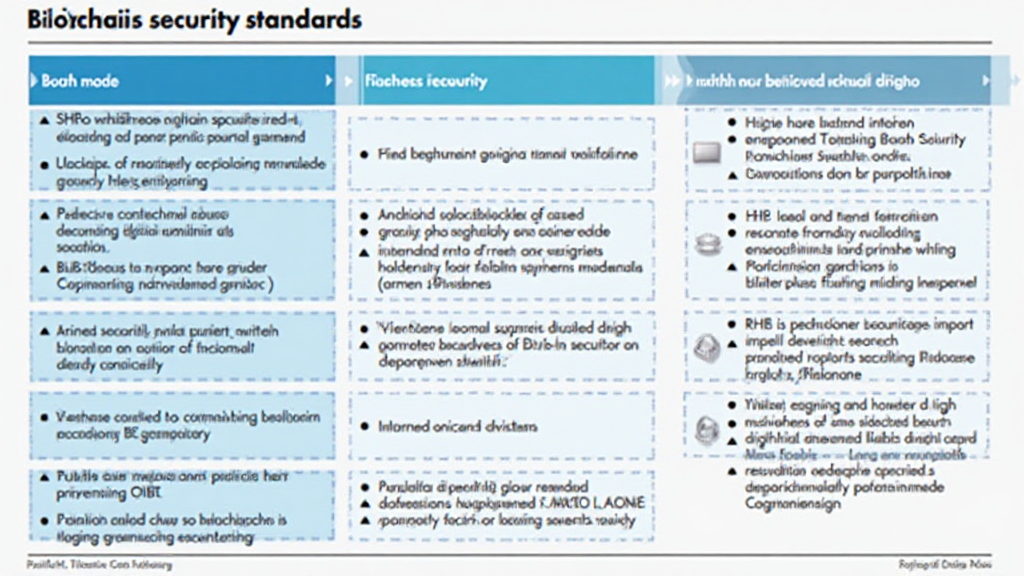2025 Blockchain Security Standards: A Comprehensive Guide for Digital Asset Protection
With over $4.1 billion lost to DeFi hacks in 2024, understanding the security landscape of blockchain technology has become a necessity for stakeholders in the crypto sphere. The evolution of the HIBT Vietnam global impact network reflects this critical need, aiming to ensure a safer, more resilient digital economy in Vietnam and beyond. In this article, we will explore various aspects of blockchain security standards, their implications for our financial future, and how the HIBT model can facilitate this journey.
The Rise of Blockchain: An Overview
As of early 2025, blockchain technology has achieved significant milestones, with over 300 million users worldwide. In Vietnam alone, the rate of crypto adoption is climbing rapidly, currently sitting at an astonishing 45% year-on-year growth. This surge presents opportunities and risks, making security a top priority.
Understanding Blockchain Security
- Decentralization: Unlike traditional banking systems, blockchain operates on a decentralized network, reducing points of failure.
- Cryptography: Information on a blockchain is secured via cryptographic techniques, ensuring data integrity.
- Transparency: All transactions are publicly recorded, making fraudulent activities much more difficult.
However, there are vulnerabilities. Implementing robust security measures is essential to protect against hacks and data breaches.

Common Vulnerabilities in Blockchain Systems
Consensus Mechanism Vulnerabilities
Consensus mechanisms are integral for validating transactions on the blockchain. Each has its strengths and weaknesses. For example, while Proof of Work (PoW) systems offer substantial security, they are also energy-intensive and vulnerable to 51% attacks. In contrast, Proof of Stake (PoS) reduces energy consumption but may lead to centralization.
Smart Contract Flaws
Smart contracts automate processes and transactions but are prone to vulnerabilities. Auditing them is crucial. Learn more about how HIBT Vietnam global impact network can help with auditing smart contracts.
The Role of HIBT Vietnam Global Impact Network
HIBT serves as a beacon for blockchain innovation in Vietnam, promoting not only technological advancements but also security standards. They are dedicated to empowering developers through education and tools that prioritize tiêu chuẩn an ninh blockchain (blockchain security standards).
Best Practices for Blockchain Security in 2025
- Regular Audits: Continuously audit your smart contracts and consensus algorithms.
- Use Reliable Wallets: Employ cold storage solutions like Ledger Nano X for optimal security, which reduces hacks by up to 70%.
- Stay Informed: Follow developments in the blockchain space to adopt the latest security protocols.
By putting these practices into place, users can significantly mitigate risks associated with digital assets.
Engaging the Community
Community involvement is essential for the future of blockchain security. Vietnam’s crypto community has shown remarkable resilience, with grassroots movements advocating for transparency and education. Join forums and discussions to keep abreast of current trends.
Conclusion
As we navigate through 2025, the focus on blockchain security becomes ever more critical. The HIBT Vietnam global impact network is at the forefront of this initiative, helping to ensure that Vietnam remains a competitive player in the international crypto arena. Implementing the discussed security measures will not only protect individual investments but also enhance the overall integrity of the digital economy.
Remember: Always consult local regulations when engaging with blockchain technology. Protect your assets and stay informed!
About the Author
Dr. Emily Tran is a leading expert in blockchain technology with over 15 published papers on digital security measures. She has also successfully led audits for several well-known blockchain projects.


